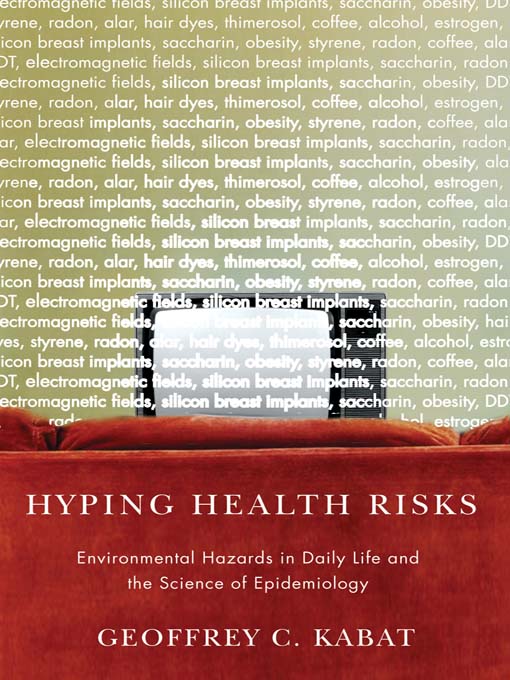The media constantly bombard us with news of health hazards lurking in our everyday lives. But many of these hazards turn out to have been greatly overblown. According to author and epidemiologist Geoffrey C. Kabat, this hyping of low-level environmental hazards leads to needless anxiety and confusion on the part of the public as to which exposures have important effects on health and which are likely to have minimal or no effect. Kabat approaches health scares as "social facts" and shows that a variety of factors can contribute to the inflating of a hazard. These include skewed reporting by the media, but also, surprisingly, the actions of researchers who may emphasize certain findings while ignoring others, regulatory and health agencies eager to show their responsiveness to the health concerns of the public, politicians, and advocates with a stake in a particular outcome. By means of four case studies, Kabat demonstrates how a powerful confluence of interests can lead to overstating or distorting the scientific evidence. He considers the health risks of pollutants such as DDT as a cause of breast cancer, electromagnetic fields from power lines, radon within residences, and secondhand tobacco smoke. Tracing the trajectory of each of these hazards from its initial emergence up to the present, Kabat shows how publication of more rigorous studies and critical assessments ultimately helped put the hazard in perspective.
- Available Now - Ebooks
- Unputdownable ebooks!
- New eBook additions
- Rapid Reads! (Always available)
- Read Before You Watch
- Addiction Affects Everyone
- NSFW! - ebooks
- Harry Potter around the world
- 中文标题
- Livres en Français
- Graphic novels & comics - for adults
- Most popular
- Read a Banned Book
- See all
- New audiobook additions
- Unputdownables!
- Read a Banned Book
- Hola, Bonjour, Hallo, Ciao, Namaste, Marhaba! Learn a language
- Author interviews UPDATED (Professional Book Nerds) - Always Available - Audio podcasts
- Nonfiction Audio - UPDATED - Always Available
- Fiction Audio - UPDATED - Always Available
- En Français, comprenez-vous?
- по-русски, понимаете ли вы?
- NSFW!
- Harry Potter around the world
- Most popular
- Available now
- See all

